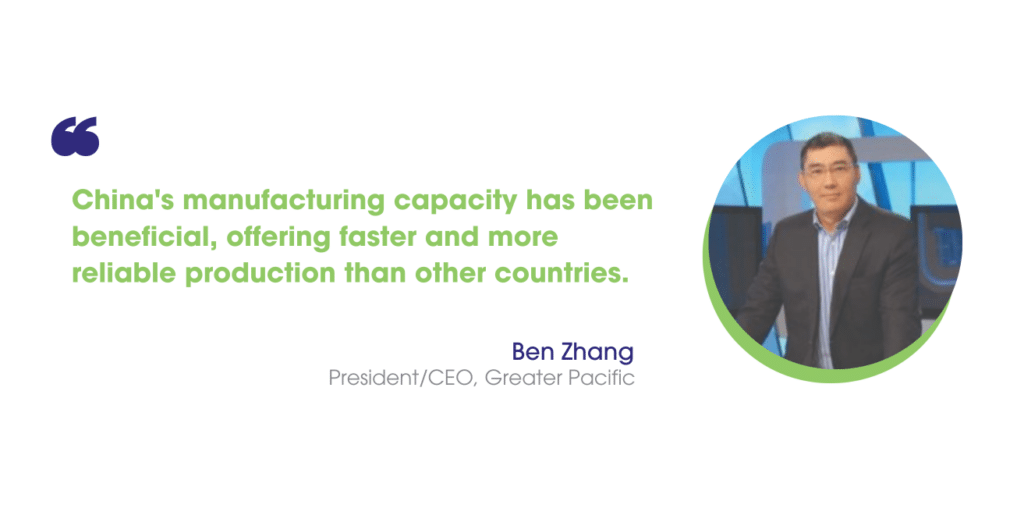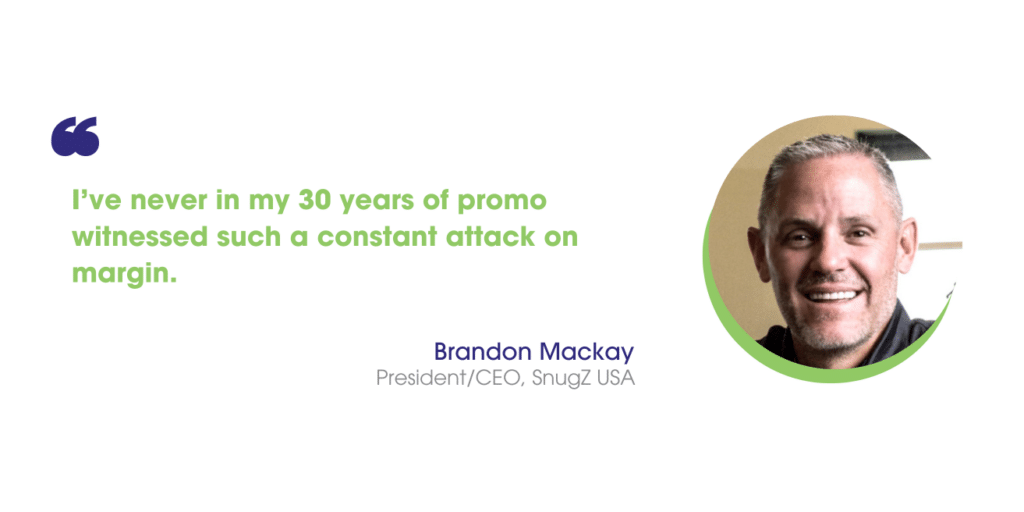China is ramping up its manufacturing output in the face of a struggling economy and international scrutiny.
As a result of China’s increased production of steel, semiconductors, silicon wafers, chemicals, electric vehicles and other items, businesses around the world are being pressured to either reduce their prices or scale back their own production, The Wall Street Journal reported.
The promotional products industry isn’t immune, according to Keith Kankovsky, senior account executive at Fort Wayne, Indiana-based supplier Apollo MFG.
“A variety of promo product categories has already come under attack from Asian manufacturers of ceramic cups, stainless drinkware, plastic keychains, etc.,” Kankovsky says. “We’ve pushed hard into differentiating our company and custom products from basic vanilla by adding components and features which mass producers wouldn’t want to bother with.

“We indeed are already seeing this flooding of the market and need to thwart the advances by increased creativity, higher import tariffs and a stronger manufacturing presence.”
Government Support
To counteract diminished consumer spending in the wake of the COVID-19 pandemic, as well as a national real estate crisis, Chinese President Xi Jinping has ordered officials to strengthen the country’s manufacturing model by plenishing it with billions of dollars in subsidies and credit.
- Loans to various industries, including manufacturing firms, have increased 63% since the end of 2021, The Wall Street Journal reported.
- Companies listed on the Shenzhen and Shanghai stock exchanges declared $33 billion in government subsidies in 2023, according to data provider Wind. That’s up 23% from 2019.
The government’s investment is paying dividends: In the first quarter of 2024, industrial production in China was 8% higher than it was at the end of 2021, according to data compiled by CPB Netherlands Bureau for Economic Policy Analysis.
- Furthermore, overall Chinese export volumes are up 10% since the end of 2021 versus 1.5% for world exports in total, The Wall Street Journal reported.
Although the promo industry has been looking for alternatives to dealing with and operating within China, where ethical concerns and tariffs make business difficult or unpredictable, Greater Pacific – the No. 68 supplier in the PPAI 100 – still sources roughly 70% of its products from the country.
“China’s manufacturing capacity has been beneficial, offering faster and more reliable production than other countries,” says Ben Zhang, president and CEO of Greater Pacific. “Alternatives often incur higher costs and pose challenges in terms of quality and scheduling.”
RELATED: Turkey Aims To Entice U.S. Promo Market Amid China, Bangladesh Concerns
The Issaquah, Washington-headquartered supplier operates on a just-in-time import model, meaning that it only brings in products that are custom-made for specific projects that its distributor partners’ clients have committed to.
Essentially, Zhang says, Greater Pacific doesn’t stockpile or flood the market.
“The promotional products industry is quite niche,” Zhang says. “Unlike retailers, our clients typically don’t plan far in advance. They often decide on their needs just weeks or even days before an event. For smaller orders, they usually source from domestic inventories. However, for larger quantities, manufacturing often takes place in China due to its unparalleled speed and efficiency. China’s infrastructure, including seaports and airports, also supports this rapid export capability.”

International Scrutiny
Xi’s intensified manufacturing strategy is also in response to – and in preparation for – global pushback.
- The United States and the European Union have imposed and increased tariffs on Chinese imports, such as steel, aluminum, rubber, solar cells, electric vehicles and other products.
- Meanwhile, Japan, India and other countries have launched antidumping investigations to see whether Chinese goods are being sold below fair value.
Xi reportedly believes that by building an industrial supply chain that can support the domestic economy, China can endure severe sanctions by the U.S. and other Western countries.
- In April, U.S. Treasury Secretary Janet Yellen traveled to Beijing to warn the government about the global consequences of China’s manufacturing overcapacity.
However, the government is denying that the country has overcapacity because “Beijing doesn’t want to give Washington, Brussels and others justification for tariffs or other retaliatory actions,” policy advisers told The Wall Street Journal.
“We’d be foolish not to think of China, our greatest rival, as a threat,” says Brandon Mackay, MAS, president and CEO of SnugZ USA – the No. 7 supplier in the PPAI 100. “We must assume they’ll do whatever is takes to make sure their economy improves.”

Mackay says that another threat to the promo industry is the sharp increase in cost of goods sold (COGS) that both suppliers and their distributor partners face. “We fight to stabilize cost on a daily basis,” Mackay says. “I’ve never in my 30 years of promo witnessed such a constant attack on margin.”
RELATED: The Long March: Promo’s Ongoing Retreat From China
In order to reduce or stabilize these issues, Mackay calls for distributors to improve order quality and for suppliers to find ways to improve operations, sourcing and compliance to “provide the industry with the best solutions from all parts of the globe.”
“I’m very bullish on promo for years to come,” Mackay says, “but we need to constantly find ways to improve.”


